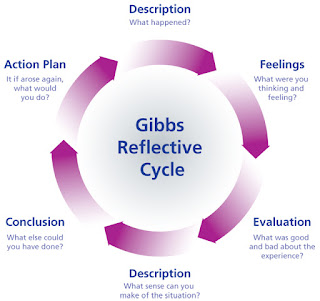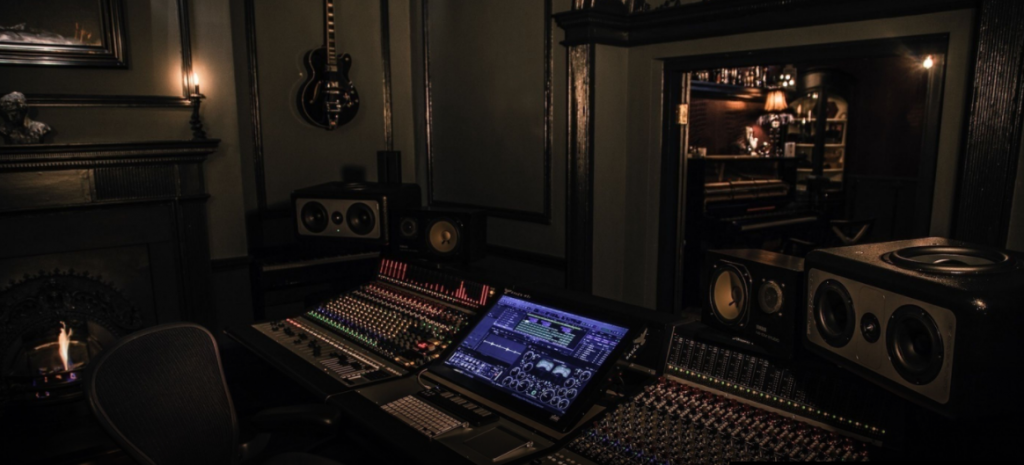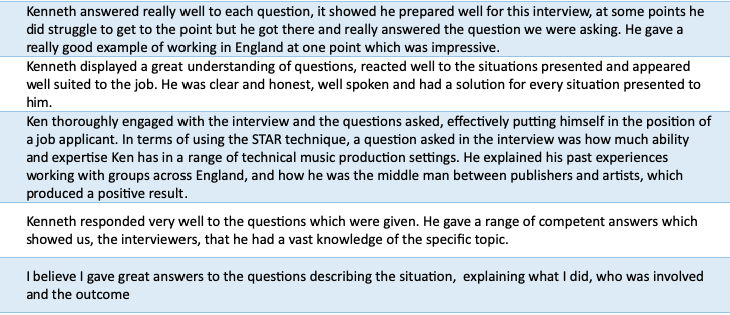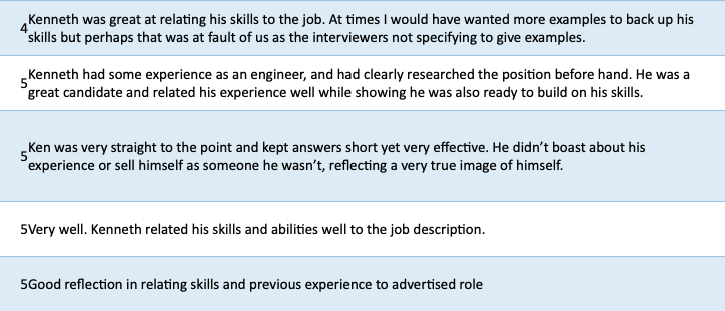Face to Face-Nowhere to hide
The “Good Book” the Bible, says that it is not what enters a man that makes him unclean, but rather what comes out of his mouth (Matthew 15:11, paraphrased). To know what a person is made of and the thoughts and intentions of his heart, allow him/her to talk and you will surely pick up on a lot of things about them. Hence the need for interviews. The oxford dictionary defines it as “an oral examination of an applicant for a job, college place, etc. I guess it is a good way of testing out this theory as anyone can hide behind a well-written CV or cover letter, but a face-to-face meeting and an oral examination take it a step further. Frances et al. (2009) purport that the individual interview is an invaluable way of gaining insight into people’s perceptions, understandings, and experiences, which contributes to in-depth data collection. No wonder many dread this word “interview.”
This blog is a reflection upon my experience of the simulated interviews, probing my preparation and performance during the interview and my thoughts after the process, employing the use of Gibb’s reflective cycle.

Getting Ready
There are two routes I am currently interested in and that is to work as an audio engineer for music or work in audio postproduction for film. Since I still have a lot to learn in regard to film, I decided that for this simulated interview I would opt for a job as an audio engineer and co-producer for a job advertised by Black Lodge, a recording studio and music production house based in Leeds.

For me personally, the simulated interviews for this module was not my first encounter with the process as I have had many jobs and roles over the years working with the construction industry, banking and finance as well as customer service roles and had to undergo interviews and other hybrid combinations to get the roles. Boud et al. (1993, p.8) state that “experience cannot be bypassed, it is the central consideration of all learning.” I felt that these previous roles had prepared me enough with real-world experience not to be nervous about a simulated one with my peers. But I could not shake off the nerves. It would, however, be my first time on the other side of the table to be an interviewer.
Drafting out my interview questions for my peers’ chosen job roles also enabled me to reflect on those same questions if I were to be asked the same for my job role. Making sure I had satisfied the key requirements of the job description was essential. I must confess that I did not feel I had spent enough time as I would have liked preparing for the simulated interviews due to personal and family constrains. Hence, I decided to go with the flow relying on my previous experiences with job interviews which had become a part of my psyche since I had been involved with quite a few of them.
Day of Judgement- Did my gamble pay off?
Finally, the day came, and boy did I dress to impress. We had been told to come into the interviews dressed semi-formally. I got there only to realise that I was the only one in a necktie, trousers, and shiny black shoes (as opposed to the jeans and trainers many of my peers were wearing). I quite frankly felt overdressed. I guess that may be the reason when it was asked who was going first, all eyes were on me. Well, I decided to take the plunge and go first.
I believe for the most parts I answered the questions well, drawing on examples from previous job roles and internships. I kept good eye contact and used a lot of body language as I felt wearing a mask due to the current health restrictions, made it difficult for the panel to see my facial expressions and smile, which I feel is a great quality I possess. I felt I may not have come across well on some of the questions due to my stammer, a condition I have tried very well over the years to overcome. But after the first couple of questions were out of the way, I was in my element once again. I did not actively remember the STAR Technique, which was discussed in our previous lectures, but I had already internalised it from learning about interviews from previous experiences and books. For each question that required me to describe or tell of a time I had done something or showed a certain quality such as teamwork, I remembered that I had to state the situation, describe what the problem or task was, explain the actions I took as an individual or a team, how the issue was resolved and finally state the impact of the resulting outcome. I did this without necessarily thinking I was following the STAR Technique, thanks to previous experiences.
When I was asked about artists I listen to, I went a little blank after I mentioned Fred Hammond, who is a top gospel artist and producer but none of the panel knew him so I thought I would mention Ed Sheeran as well. But I felt I wasn’t true to myself as I knew only a couple of his songs but felt the panel would relate more.
Turntable

When the tables were turned and I was the interviewer, I was able to ask questions that would bring out qualities of the candidate that were not directly related to their chosen job role but helpful in knowing the kind of person they were using open-ended questions, which when used with other interviewing techniques, explore topics in depth and helps to understand processes (Weller et al., 2018).
Has the Jury reached a verdict?

Feedback from my peers proved very informative ad confirmed a few of the impressions I had towards my performance. Below is a snapshot of some of their comments.


The areas I needed to work on were things like giving more examples to back up my skills and also improve more on my small talk. Mostly, the feedback was mainly positive.
If I should encounter similar situations in the future, I would improve on my preparation and work on a lot more practical examples for my answers. I would also work on my breathing to help me cope with my stammering, so I don’t come across as nervous.
In conclusion, this experience of learning through simulated interviews and previous experiences, reaffirms the words of Boud and Miller (1996, p.158) that “we must learn from experience if we are to survive, and we have highly developed capacities to do this.”
BIBLIOGRAPHY
- Boud, D. Cohen, R. and Walker, D. (1993) Using experience for learning. Buckingham: SRHE and Open University Press
- Boud , D. and Miller, N. (1996) Working with experience. London and NewYork: Routledge
- Weller, S. C. Vickers, B. Bernard, H. R. Blackburn, A. M. Borgatti, S. Gravlee, C. C. and Johnson, J. C. (2018) ‘Open-ended interview questions and saturation’, Plos One, Available at: https://doi.org/10.1371/journal.pone.0198606 (Accessed 18 February 2022).
- Ryan, F. Coughlan, M. and Cronin, P. (2009) ‘Interviewing in qualitative research: The one-to-one interview’, International Journal of Therapy and Rehabilitation DOI:10.12968/ijtr.2009.16.6.42433, Available at: https://www.researchgate.net/publication/261471599_Interviewing_in_qualitative_research (Accessed 18 February 2022)
I’m better than the rest! Promise!
2nd Blog Post
You May Also Like

When the BBC thinks you live in the Atlantic – My Simulated Interview
17 February 2022
So You Want To Be A Teacher?
17 February 2022
